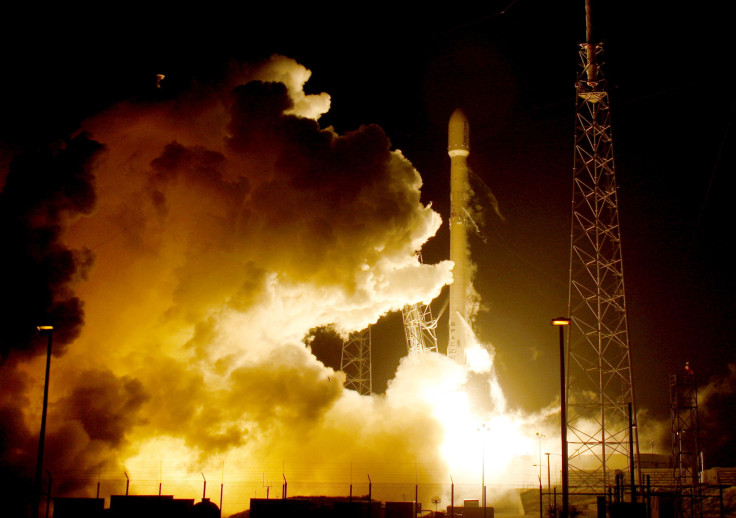SpaceX Rocket Pulls Off Safe Landing In A Landmark Event

Elon Musk’s SpaceX has successfully managed to guide a reusable rocket back to Earth after it launched a payload into space. The Falcon 9 rocket, which blasted off from Cape Canaveral, Florida, on Monday, deployed a payload of 11 orbital satellites and returned close to its launch site in a landmark event in space travel's history.
The operation marked a major victory for SpaceX since a rocket failure in June destroyed a NASA cargo ship bound for the International Space Station. The launch, which was scheduled to take place over the weekend, got delayed due to unfavorable weather. It was also the company’s third attempt to land the rocket safely back on Earth.
"Welcome back, baby!" Musk said on his official Twitter account after touchdown.
While traditionally rockets are disposed off after they detach from their payload, the 23-story Falcon 9 rocket’s first-stage booster and its nine engines returned 10 minutes after launch. The upper-stage booster continued its ascent to Earth's orbit with its payload. The ability to recycle rockets marks a big step toward making space travel cheaper, Musk said in June.
A SpaceX representative reportedly said that the task is "like launching a pencil over the Empire State building and having it land on a shoebox on the other side ... during a wind storm."
Landing from helo https://t.co/dYomRtG0Xs
— SpaceX (@SpaceX) December 22, 2015According to media reports, jubilant SpaceX employees were seen celebrating at its California headquarters as they watched a live video footage of the 156-foot white first-stage booster slowly descending upright and make a successful landing.
The company’s first attempt to land a rocket in January failed when one of the rocket’s landing fins malfunctioned and the rocket crashed into the drone ship it was meant to land on. On its second attempt in April, the SpaceX rocket’s engine stopped working briefly, causing it to fall off its platform into the ocean.
“A jumbo jet costs about the same as one of our Falcon 9 rockets, but airlines don't junk a plane after a one-way trip from LA to New York. Yet when it comes to space travel, rockets fly only once — even though the rocket itself represents the majority of launch cost,” SpaceX explained in its blog in June.
© Copyright IBTimes 2025. All rights reserved.




















